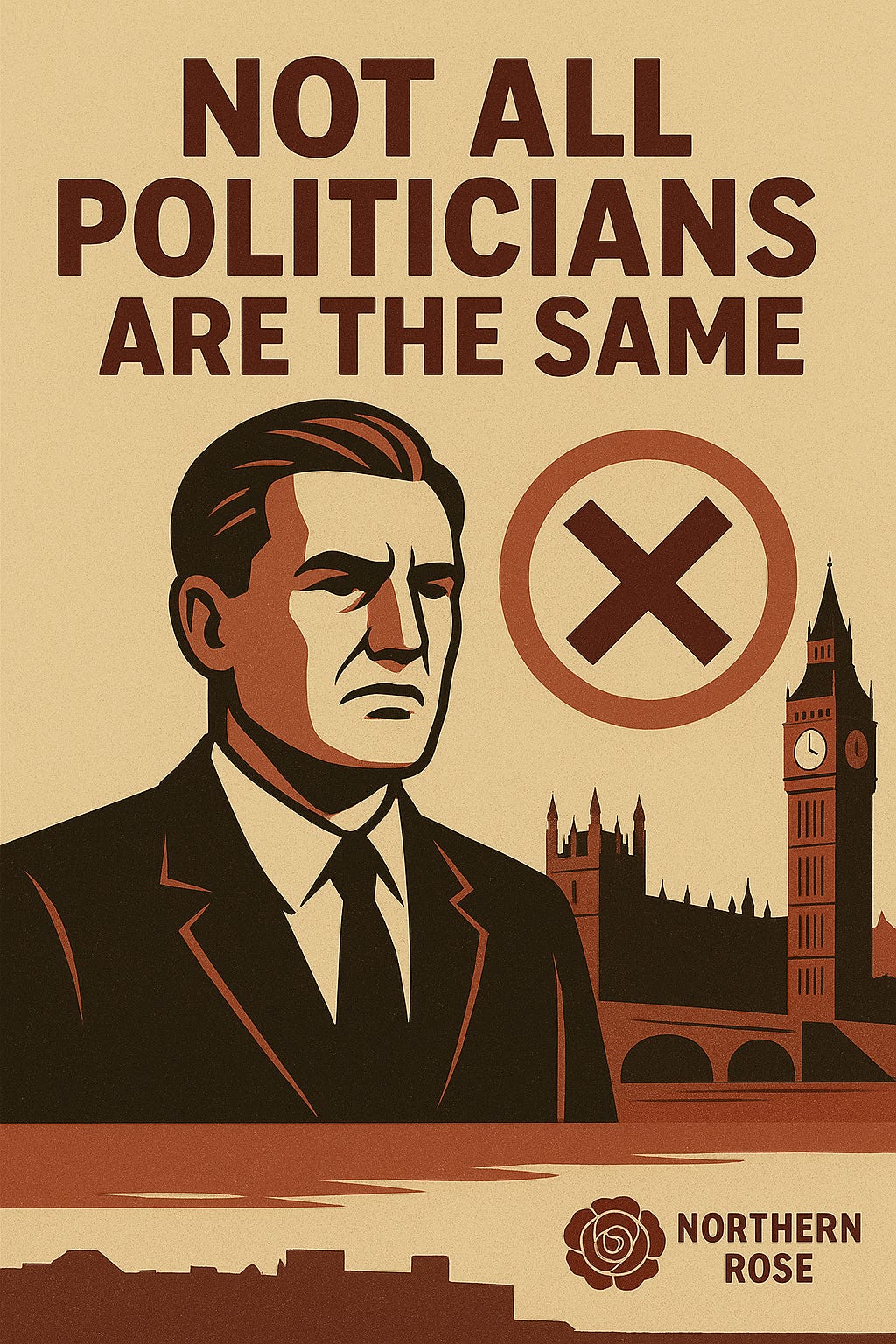Why “They’re All the Same” Is the Most Dangerous Lie in Politics
Dr North discusses one of the most dangerous lies in politics.
Recently I’ve been considering the saying that is often heard in pubs, on the bus, or in comments sections: “All politicians are as bad as each other”. It sounds cynical and projects an air of wisdom. But in truth, this sentiment is neither smart nor harmless. It’s a weapon, one that corrodes democracy and hands power to the very worst actors in politics.
Cynicism is a Gift to the Corrupt
When people decide that every politician is equally corrupt, incompetent, or self-serving, they stop distinguishing between those who make mistakes and those who act with malice.
Equating them all has consequences:
- It lets the worst offenders hide in the crowd and avoid accountability.
- It creates apathy, pushing people away from voting or organising.
- It means honest reformers are undermined before they even start.
The reality is stark: while some politicians exploit power for personal gain, others fight tirelessly for equality, housing, healthcare, and fair pay. To erase those differences is to erase accountability itself.
History Shows the Danger
Time and again, cynicism has been used as cover for authoritarianism. In Weimar Germany, in post-Soviet Russia, in Brexit-era Britain, mistrust of the political class allowed strongmen to rise by claiming to be “different”. The idea that “everyone’s corrupt” creates space for demagogues to pose as outsiders—even when they are more corrupt than the politicians they replace.
False Equivalence
There is no moral equivalence between:
A politician who mishandles policy but works in good faith, and a politician who lies, stokes hatred, and enriches themselves at public expense.
We may be dissatisfied with the current Labour government for not being ambitious enough, but they have made some seriously impressive policy decisions, which will lift children out of poverty and improve workers’ rights and conditions.
In the meantime, Reform ministers take Russian bribes and make absurd policy promises that feed peoples hatred, but will only negatively impact our lives (see Brexit).
Dismissing both as equally bad is like saying a doctor who makes an error is no better than a fraud selling poison. One can learn and improve. The other thrives on deceit.
Who Benefits?
The phrase “they’re all the same” is not neutral. It benefits those who want less scrutiny, lower voter turnout, and weaker democracy. The corrupt want you to disengage. The powerful want you to stop believing change is possible. Cynicism is their shield.
Rebuilding Trust
Of course, mistrust in politics does not appear out of nowhere. Scandals, expenses abuse, broken promises—they all feed disillusionment. But the response cannot be blanket dismissal. It must be sharper, more demanding:
- Hold individuals accountable instead of condemning the whole system.
- Celebrate integrity where it exists, so good leadership is not drowned out.
- Stay engaged, because walking away is the very outcome the worst politicians want.
Conclusion: A Lie That Weakens Us All
Saying all politicians are as bad as each other feels like common sense—but it’s a lazy generalisation that serves the corrupt and undermines the good.
Democracy depends on distinctions: between honesty and deceit, between competence and chaos, between service and self-enrichment. If we stop making those distinctions, we abandon the possibility of better politics altogether.
The truth is simple: not all politicians are the same. Pretending otherwise is not wisdom—it is surrender.


